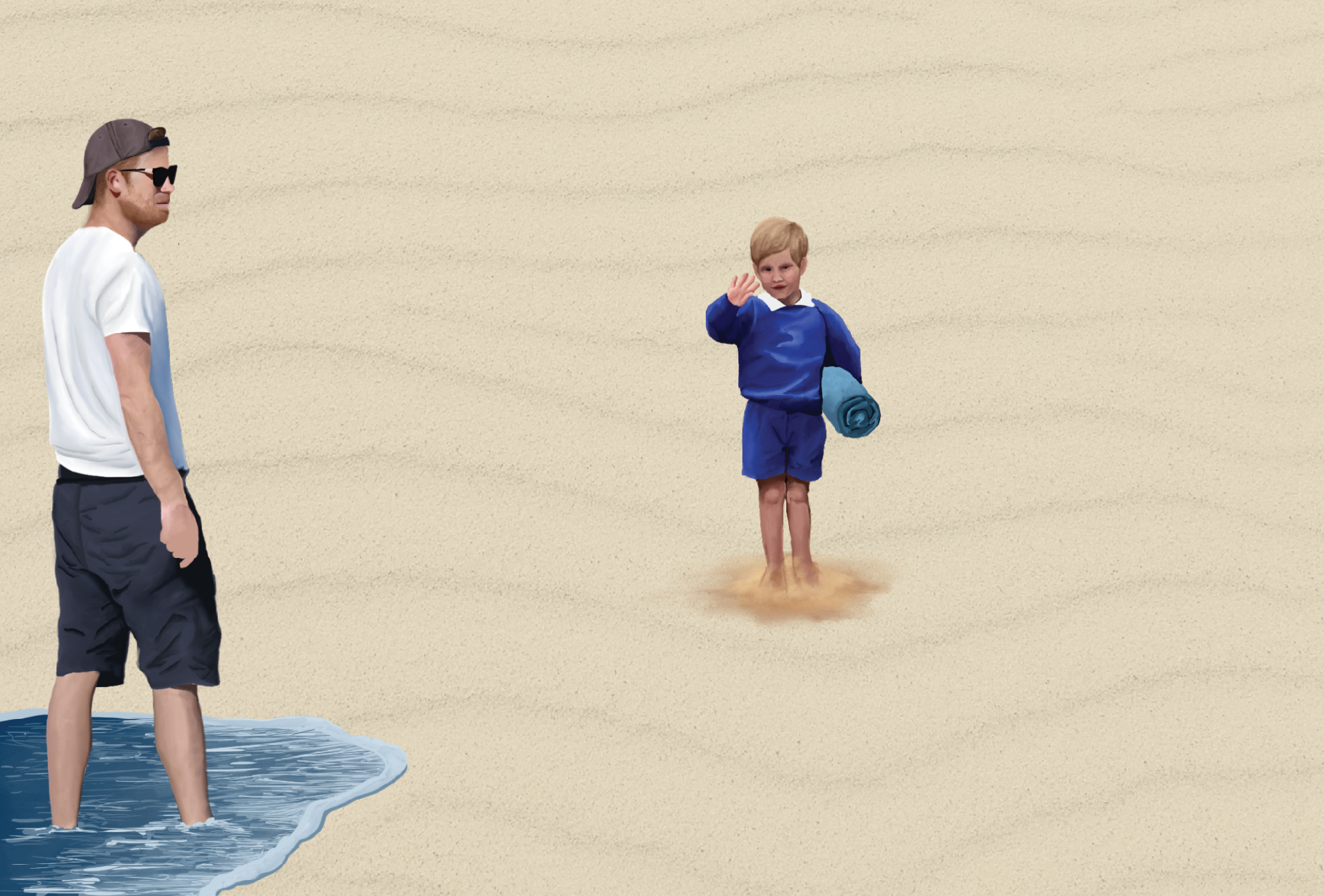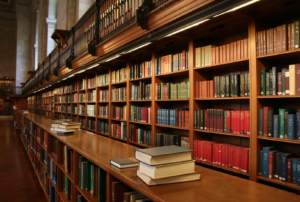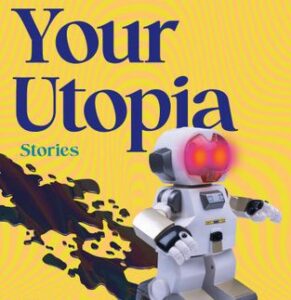Content warning: This article includes references to racism.
Oprah. 60 Minutes. The Late Show. A six-part docuseries. In numerous recent public appearances, Prince Harry and Meghan, the Duchess of Sussex, have defended their controversial exit from the British royal family and detailed the racist vitriol and scrutiny perpetrated by the press. Lately, this endless media campaign has inched into overexposure—repetitive at best and cash-grabby at worst, even for the Sussexes’ staunchest supporters.
Of course, it’s important to expose the racism Meghan has experienced, particularly from the media. From online bigotry to name-calling in the tabloids and even credible threats to their personal security, the couple has certainly been through the wringer since they started dating in 2016. It’s also understandable that they’d wish to correct misconstrued narratives and debunk the blatantly false stories that are published daily, often with the approval of the royal family. And yet, one has to wonder, how many times can Harry and Meghan possibly reexplain the same events while avoiding a broader conversation about racism and the monarchy?
With his new memoir Spare, Harry takes another sure-to-be-lucrative step into the spotlight. The book examines his childhood and early adulthood, including his time in the military. Harry poignantly reflects on his tumultuous lifelong journey with grief, family, and duty. But Spare concludes with another rehashing of the Sussexes’ departure from the royal family while offering little new insight or perspective. Despite its strengths, Spare suffers from one fundamental shortcoming: Harry fails to provide a compelling reason for the book’s very existence.
Divided into three sections, Spare opens with the death of Harry’s mother, Princess Diana, and introduces a deeply traumatized, emotionally repressed preteen prince. During a post-high school gap year split between a ranch in the Australian Outback and southern African communities devastated by AIDS, Harry finally finds much-needed structure, guidance, and mentorship.
In the book’s second chapter, Harry encounters those same attributes in the military, rising through the ranks during two tours in Afghanistan. Harry’s depictions of war are candid, matter-of-fact, and almost too thorough, from his barebones accommodations in Taliban-occupied regions to a tally of deaths for which he was responsible. His accounts of the gap year and decade in the army demonstrate that, unlike his family, he has experienced the world outside the royal bubble, giving him a distinctive—but still rudimentary—awareness of his privilege.
In addition to this sense of perspective, Harry presents a nuanced look at his personal relationships, unlike the sometimes one-dimensional characterizations in the Sussexes’ prior interviews. Harry is strikingly empathetic toward his father and brother in the early chapters, despite their frequent spats. When discussing his strained, overly competitive relationship with Prince William, Harry recognizes the unique pressures his brother has faced as heir to the throne. Similarly, while it’s widely known that King Charles was a far-from-perfect father, Harry acknowledges the challenges of unexpected single parenthood. He highlights the subtle but meaningful ways Charles tried to overcome his naturally unnurturing disposition and forge a relationship with his sons, like tucking school-age Harry into bed each night to ease his fear of the dark.
Harry makes a convincing case that the press played an outsized role in his life from a young age. Early on, the media branded Harry as the “naughty” brother and tirelessly promoted this characterization, publishing exaggerated—and sometimes outright fabricated—stories about supposed drug use, dates with allegedly questionable women, and cheating at school. This invasive reporting contributed to several breakups and the abrupt end to his first stint in Afghanistan. His play-by-play recollections of efforts to evade paparazzi and stay ahead of the tabloids contextualize the all-consuming paranoia (what Harry’s therapist later describes as an “addiction to the press”) that damaged his relationship with the media long before Meghan entered the equation.
Spare’s final chapter recounts the recent years of Harry’s life and his relationship with Meghan. Harry guides readers through the media’s well-documented descent into sensationalism, slander, and racism, alongside the royal family’s refusal to meaningfully support the couple. Disappointingly, this section lacks the elevated, introspective tone of the rest of the book, perhaps due to the recency and rawness of the subject matter, thus failing to add new details or nuance to the existing narrative.
By the end of the memoir, Harry has yet to offer a conceivable argument for its purpose. In the prologue, he suggests that it’s an effort to explain to the world why he left the royal family, which would be a noble aim if that hadn’t also been the purpose of all of the Sussexes’ recent media appearances. At a hefty 407 pages, Spare is unlikely to be read in full by the couple’s most ardent detractors—those relying on tabloid headlines—or anyone not already invested in the couple’s story. Pardon the cynicism, but with no clear raison d’être, it’s difficult to see Spare as anything but a ploy to stay relevant and make money.
But it didn’t have to be this way. Even without a rousing call to dismantle the monarchy, the book could have at least encouraged readers to examine the institution more carefully. Throughout Spare, Harry portrays both the media and the monarchy as proxies for the British public and emphasizes the interdependence of the two institutions. Based on this logic, it’s virtually impossible to be critical of the media to the extent the Sussexes want audiences to be while still supporting the monarchy’s existence at all. If the media is racist and in need of an overhaul, then the monarchy must be as well.
Harry inches toward criticizing the monarchy, but frustratingly stops short of explicitly doing so. In a recent interview on the British channel ITV, Harry said he wouldn’t characterize the royal family as racist but instead plagued by “unconscious bias,” his favorite buzzword. But it’s actually difficult to imagine a bias more conscious than that of the British monarchy, an institution predicated on centuries of colonial subjugation and racism. And yet, in Spare, Harry goes so far as to actively counter anti-monarchy arguments, even defending controversial issues like the burden on taxpayers. The message is clear: If an infamously racist institution hadn’t been racist to his wife, he would’ve remained complicit in its sins.
It’s disappointing to see Harry and Meghan constantly retell their story so insularly without expanding beyond their own hardship to critique the structure that created it. After reading Spare, it’s evident that Harry is still doing his part, albeit from the beaches of Santa Barbara, to ensure that the sun never sets on the British Empire.







OMG, it’s so enlightening to delve into Harry’s journey and his family dynamics. While we’re all drawn of personal stories, it’s important to recognize that we all have our own addictions. Just like Prince Harry’s introspection, in literature essays, we explore characters’ complexities and themes, like in works by Shakespeare or Austen, adding depth to our understanding. Let’s appreciate the nuances in both personal narratives and academic pursuits!